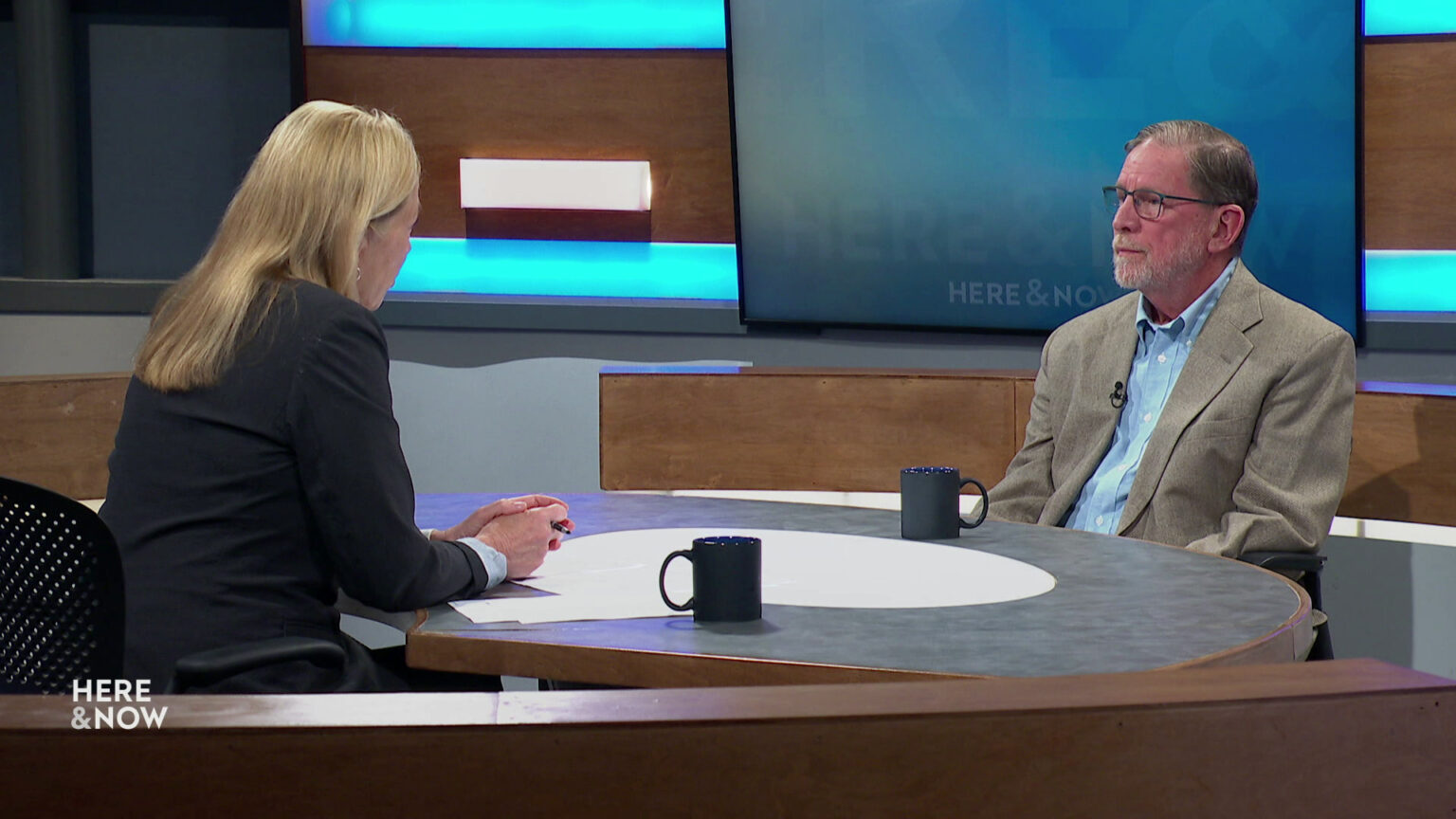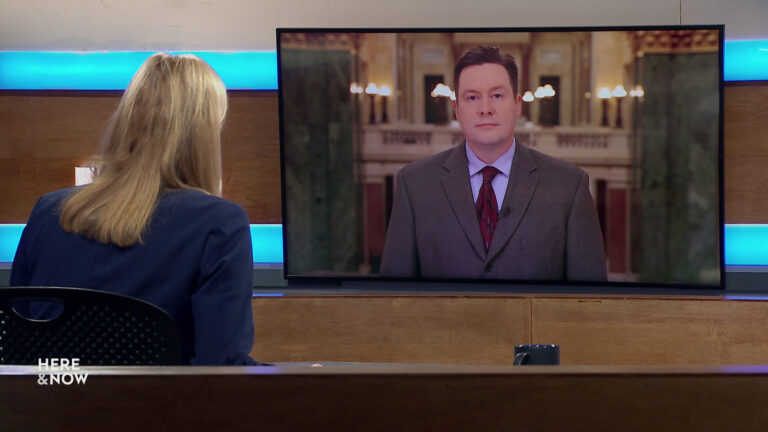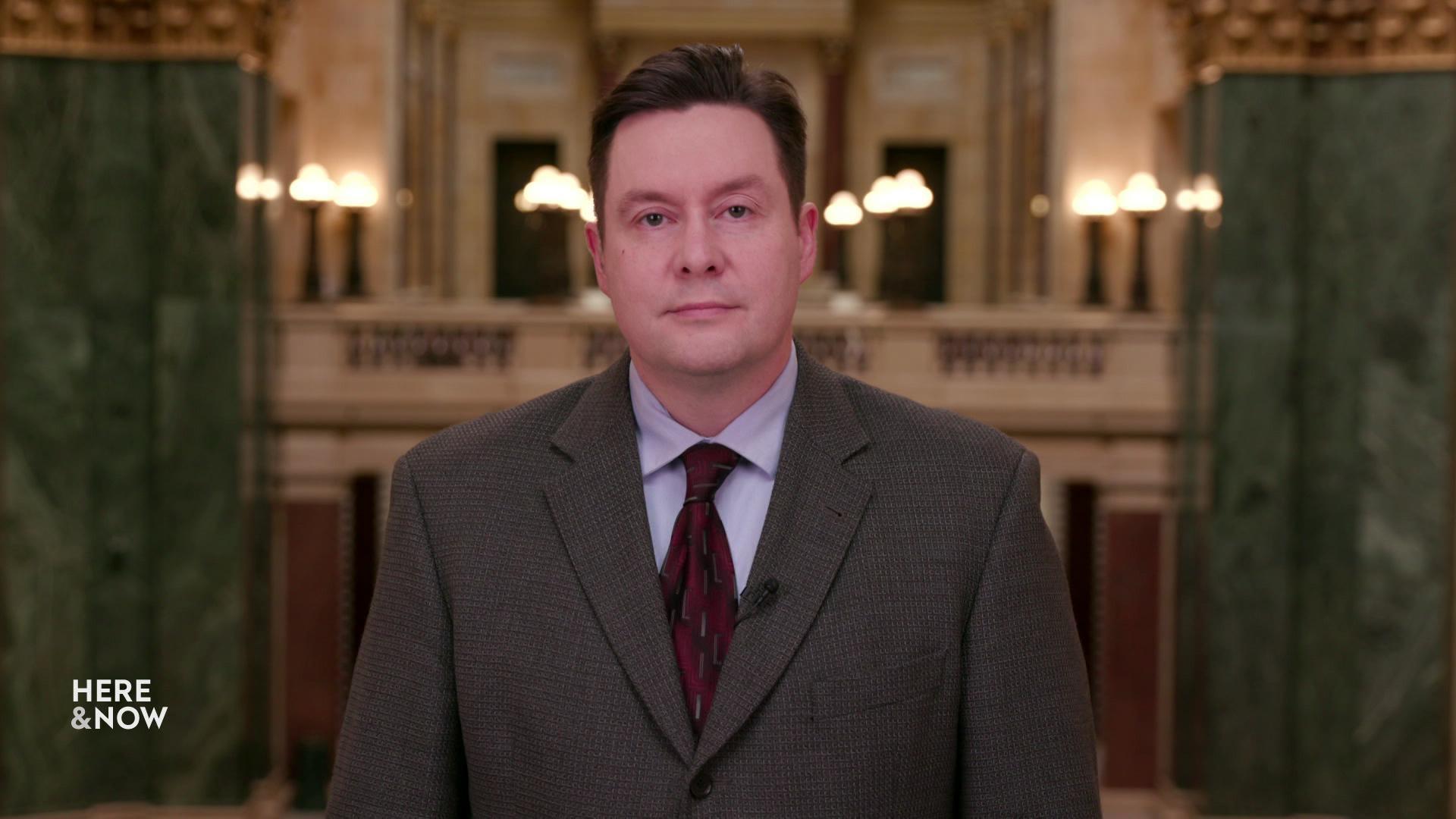'Here & Now' Highlights: Dr. Michael Siebers, Bill Hanna, State Rep. Dean Kaufert
Here's what guests on the May 30, 2025 episode said about federal cuts to the Veterans Affairs hospitals, cuts to social safety net programs, and prospects for bipartisanship in the Wisconsin Legislature.
By Frederica Freyberg, Kristian Knutsen | Here & Now
June 2, 2025

Frederica Freyberg and Dr. Michael Siebers (Credit: PBS Wisconsin)
Workforce reductions within the U.S. Department of Veterans Affairs are hitting home at VA hospitals in Wisconsin, with retired Dr. Michael Siebers saying that in the midst of federal cuts the agency is in “crisis.” Congressional budget action saw the U.S. House of Representatives set new rules and requirements for Medicaid and the Supplemental Nutrition Assistance Program — Wisconsin Department of Health Services Medicaid Director Bill Hanna described the statewide impact. State Rep. Dean Kaufert was a longtime member of the Wisconsin Legislature before departing in 2012 to serve in a local office — a dozen years later, he has returned and shares his perspectives on the intensity of state politics.
Dr. Michael Siebers
Retired U.S. Department of Veterans Affairs physician
- The Trump administration has made significant cuts to the workforce at the U.S. Department of Veterans Affairs, and plans for more are in the works, prompting turmoil among remaining staff. Retired after working 27 years in the Veterans Health Administration, Siebers shared examples of the consequences of cuts to the VA system and its hospitals. He said at the William S. Middleton Veterans Hospital and Clinics in Madison, there is a shortage of custodial staff, so cardiovascular surgeons and surgical nurses are cleaning the operating rooms, which delays surgeries as the medical staff do that work.
- Siebers: “There are things that are happening that make it harder to deliver good patient care. The pattern of loss of people at the VA is primarily letting go people who are support staff, so that the physicians, they’re not letting them go. The nurses, they are not letting them go, although 1,700 nurses have already taken early deferred retirement. Two hundred doctors — we know — have taken early deferred retirement. There was a case where in one VA hospital, the X-rays were piling up. There was no radiologist to read them for an extended period of time. And that’s a very detrimental and dangerous situation for patients.”
Bill Hanna
Medicaid Director, Wisconsin Department of Health Services
- In a major federal budget package, the U.S. House passed new work requirements and eligibility rules for the Medicaid program. Hanna estimates those changes will result in 63,000 adults without children under the age of 18 losing coverage in Wisconsin. For SNAP benefits, called FoodShare in Wisconsin, he said expanded work requirements would mean about 90,000 people would lose the monthly assistance. Additionally, the federal government would penalize states connected to their error rates in the program. Hanna said Wisconsin’s rate is very low, but would still cost the state about $207 million annually.
- Hanna: “It also is an incredible cost shift, not just for the error rate, because what it does for the first time is requires states to contribute towards FoodShare benefits, which at a minimum will cost us $69 million a year in Wisconsin. It also changes the amount of the administrative costs that the federal government will pay. Today, they pay 50% of those costs, split 50/50 with the state. Going forward, they would only cover 25% of the costs. So that’s an additional $51 million for us to just run the program that we run today that is a well-run program.”
State Rep. Dean Kaufert
R-Neenah
- A Republican member of the Wisconsin Assembly for more than two decades in the 1990s and through the 2000s, state Rep. Kaufert left the Legislature in the wake of the furor over Act 10 to run and win multiple elections as the mayor of Neenah. In the wake of redistricting in early 2024, Kaufert was recruited by state Republicans to run again for the Assembly in a seat expected to have a close race, and wound up winning by just 365 votes. He spoke to how the cost and tone of state-level politics has changed in the meantime.
- Kaufert: “I love government, I hate politics. My entire years in the Legislature, we were responsible for our own fundraising. It was all local. The most we spent was $39,000 bucks — I think was the highest that I ever spent in my campaign. And, you know, now it’s millions of dollars. The Democrats and their friends spent $3.8 million against me. Our side, I think, spent $1.3 million. Job pays $57,000 a year. It is crazy. But $3.8 million against you every day — getting your head pounded in every day. Both parties — Republicans and Democrats — because I watched ads from both parties all over the state. Lies, fabrications — it’s just not good, and there’s nothing you can do about it. I mean, at night, I mean, I’m not afraid to say to my wife and I would go, ‘What the hell did we do this for?’ Because you’d come home at night after watching the TV having 10 ads during a TV show that were just blatant lies. And there’s nothing you can do about it. It’s no fun. It’s no fun for you, it’s no fun for your family. And then the hardest part is when you come — you get here and then people say, ‘Are you going to be bipartisan? Can we work together?’ Well, you just spent three months, four months telling people in my district what a bad person I was.”
Watch new episodes of Here & Now at 7:30 p.m. on Fridays.
 Passport
Passport











Follow Us